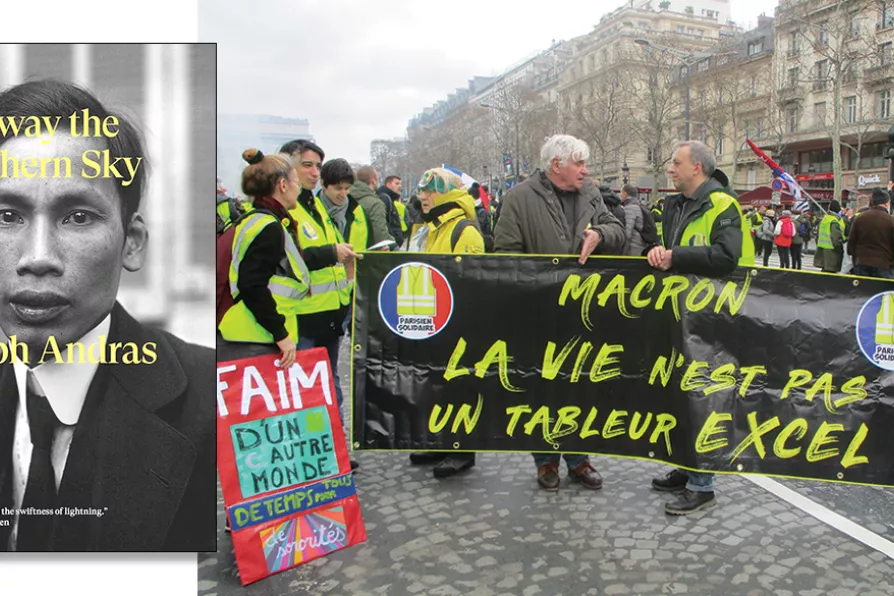STEPHANIE DENNISON and ALFREDO LUIZ DE OLIVEIRA SUPPIA explain the political context of The Secret Agent, a gripping thriller that reminds us why academic freedom needs protecting

 A TELLING REPOSTE: ‘Macron, life is not an Excel spreadsheet,’ Yellow Vests demo in Paris on March 16, 2019
[Thomon/CC]
A TELLING REPOSTE: ‘Macron, life is not an Excel spreadsheet,’ Yellow Vests demo in Paris on March 16, 2019
[Thomon/CC]
Faraway the Southern Sky: A Novel
Joseph Andras, Verso, £9.99
IN 1968, as war raged across Vietnam, the Vietnamese revolutionary popularly known as Ho Chi Minh wrote a new year’s message to the worldwide movement against the US war on the Vietnamese.
After somewhat poetically listing the ongoing war crimes of the US military, the letter ended with these words: “We enjoy the support of brothers and friends in the five continents. We shall win and so will you. Thank you for your support for the Vietnamese people.”
I wouldn’t read these words until the fall of that year; my anti-war consciousness was just taking shape. I was 13. I recall that, when I did read them that first time, it was like a light bulb going off. I could no longer consider any Vietnamese as an enemy. To do so would require demonising them — something I could no longer do after reading this simple and honest letter.

RON JACOBS salutes a magnificent narrative that demonstrates how the war replaced European colonialism with US imperialism and Soviet power

RON JACOBS welcomes an investigation of the murders of US leftist activists that tells the story of a solidarity movement in Chile

RON JACOBS welcomes the translation into English of an angry cry from the place they call the periphery

KYRIL WHITTAKER looks at what guides Vietnam 50 years after reunification









